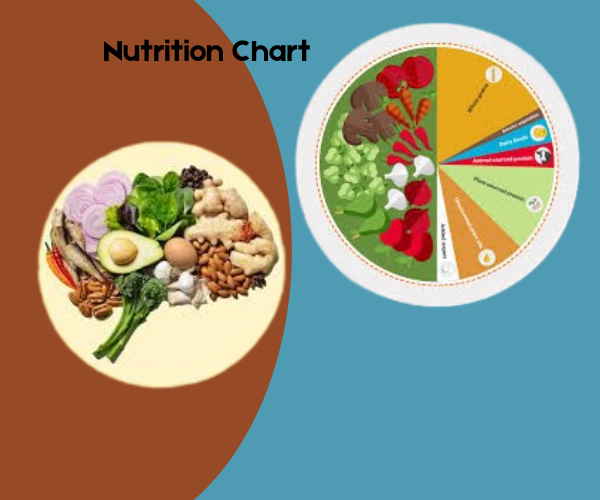Basic Principles of Health Nutrition
Health nutrition refers to the study of the total health of an individual in relation to nutrients that are normally consumed in foods. This includes covering the nutrients and their effects on the growth and other features of the body; they include vitamins and minerals, proteins, fats, carbohydrates, and water. Meaning,
Table of Contents
Health is about nutrition or the right food if they are to help build those muscles, enhance the immune system of the human body to all sorts of diseases that will affect a human being at any one time in his or her lifetime, and not develop complications like obesity, diabetes, and heart complications. A nutritionally adequate diet therefore just means a combination of foods that are required in their right proportions for the body to function properly.
Appropriate nutrition also works on the mental or the emotional capacity and the physical capacity to fix and mend. Many of today’s societies’ members never find the time to study the concepts because of fast food rolls and sedentary life.

If it is possible to make an intelligent choice when it comes to the type, quantity, and frequency of foods consumed, then man can choose to have his/her weight under his/her control, gain more energy, live longer, and have a healthy life. Thus, the main point of the Health Nutrition is the establishment of stable trends of proper nutrition—those that are beneficial to the body in the long term. Diet is the foundation of any weight loss program, for chronic diseases, or just planning to increase physical activity.
A nutrition chart is a visual A nutrition chart is an aid that allows distinguishing between the necessary nutrients in various types of foods and the effects on our health. The following provides a general summary of the essential nutrients and the amount that an average person should consume each day:
id for comprehending the vital nutrients found in different food types and how they contribute to our general well-being. The following provides a general summary of the essential nutrients and the amount that an average person should consume each day:
Key Vitamins and Their FunctionsThe Function of Vitamins in the Body and Food Sources
A nutrition chart is a tool that shows the required nutrients in different food categories and their impact on our health. The following provides a general summary of the essential nutrients and the amount that an average person should consume each day:
id for understanding the macronutrients present in various foods and how they affect our overall health. The following provides a general summary of the essential nutrients and the amount that an average person should consume each day:

Nutrition Chart Overview
Author’s Organized List of Vitamins and Their RolesSigns and Symptoms of Vitamin Deficiency and Sources of Vitamins
Suggested Daily Consumption
Vitamin A
Improved immune function and vision and skin health
Sweet potatoes, spinach, and carrots: 700–900 mcg
Vitamin C is an antioxidant vitamin that helps enhance skin condition and the immune system.
Broccoli, peppers, and citrus fruits: 75–90 mg
Vitamin D
Special emphasis was given to physical health, particularly to bone health and to the ability of bones to absorb calcium.
Skin, sun, nutrient-dense food, calcium and vitamin D, and 600-800 IU vitamin E antioxidant.
Spinach, nuts, and seeds: 15 mg
Vitamin K
Bone health, especially the rate at which they are built and the blood coagulation rate.
Both broccoli and leafy greens contain 90-120 mcg of B vitamins.
We examined nerve function and energy metabolism.
Eggs, beef, and whole grains
vary (B12: 2.4 mcg, for example).
Essential Minerals and Their Functions
Minerals in the Body and the Foods to Consume Daily
Calcium
Maintenance of bone and teeth health, muscle contraction, and nerve impulses.
Leafy greens, dairy, and tofu
1,000–1,300 mg
Iron
Oxygen delivery and transport as well as energy production
Spinach, beans, and red meat:
8–18 mg
Regardless, the essence of the mineral magnesium is critical.
on bone health, the neurons, and the muscles. Leafy greens, seeds, and nuts: 310–420 mg
Potassium
Muscle, nerve supply, and balance of fluids
1500-2000 mg of spinach, potatoes, and bananas
Sodium:
Skeletal, smooth, and cardiac muscles, fluid concentration
1,500 mg of salt and processed foods and not exceeding 2,300 mg.
Tips for Balanced Nutrition
Take balanced meals of grains, a lean source of protein, fruits, and green vegetables.
Limit portion sizes: The population needs to adhere to advised proportions of foods in their diets for them to be healthy and achieve their recommended weight.
Reduce your intake of processed foods: Limit your use of salty foods, foods high in bad fats, and foods with processed sugar.
Remain hydrated: Drink water during the day to help your body with various processes that are happening in your body.
Select good fats: Watch out for unsaturated fats like those found in avocado, almonds, and olive oil.

You may sustain your body needs and maintain a healthy body by following these guidelines and aiming at balanced macronutrient and micronutrient consumption.
.
- For provision of health, growth, and protection against diseases, diet plays an important role. The following are the salient points that characterize the significance and attributes of nutrition:
- 1. Energy Provision
- Principal Purpose: It will be crucial to establish that the body leverages proteins, lipids, and carbohydrates as its essential energy supply.
- Carbohydrates: Quick and easy to replenish and provide energy to the body.
- Fats: Long-lasting fuel supplies and are required for several cellular functions.
- Proteins: Their major roles are associated with tissue build-up and regeneration, but where fats and carbohydrates are inadequate, it is possible to incorporate proteins for energy.
2. Growth and Development
Important Function in Physical Development: During periods of fast growth, such as childhood, puberty, and pregnancy, nutrition plays a critical role in the development of cells, tissues, and organs.

The building blocks of new cells and tissues are proteins.
Calcium and vitamin D are two examples of vitamins and minerals that promote bone growth and the development of healthy tissues.
3. Regulation of Body Processes
Balanced Functions: Proper nutrition helps regulate several mechanisms within a human’s body, such as immune system, hormones, metabolism and digestive system.
With regard to the functions water transport waste products and nutrients and helps in regulating body temperature.
4. Immune System Support Increases Immunity: Eating healthy strengthens the immune system through which a human being is protected against infections and diseases.
The higher functioning of immune system requires vitamin C which is found in fruits and vitamin A which is found in vegetables.
Iron is important in the body and helps to fight infections and zinc too plays important role in body.
5. Maintenance and Repair of Cells Tissue restore: Nutrients are required as heal for damaged cells and tissues in the body. This is especially important in cases of exercise, disease or trauma.
Proteins play an important role in cell repair, growth and development of tissues as well as muscular tissues.
Vitamin E and Vitamin C are two of many antioxidants which protect cells from oxidative stress and damage.
6. Disease and Deficiency Prevention
Disease Prevention: Consuming adequate amounts of food can reduce one’s probability of getting certain diseases such as obesity, diabetes, high blood pressure, and some forms of cancer. It also assists in the minimization of nutritional deficits.
Fiber prevents high risks of heart diseases and also means one avoids taking foods that cause constipation.
Foods that contain omega-3 fatty acids, such as fish, are good for the heart.
7. Mental Health and Cognitive Function
- Brain Health: To maintain mood and cognitive function, as well as balance, it is necessary to eat healthy.
- In fatty fish categories, omega-3 fatty acids that are supposed to have benefits to the body, particularly in the brain.
- This is so because B vitamins, including folic acid and B12, enhance the operation of brain chemicals that lead to moods and memory, as well as Madopollo, which contains vitamin B6, which helps in controlling anxiety too.
8. Maintenance of Body Structure
- Support for Bones, Muscles, and Organs: As for body composition, proteins preserve muscle tissue and other tissues too; calcium, vitamin D, and magnesium keep bones strong.
- Prevention of osteoporosis and maintenance of bone density are, therefore, related to calcium and vitamin D.
- Vitamin C is needed in the synthesis and function of collagen, which is present in skin, cartilage, and bones.
9. Support of Digestive Health
- Gut Health: Maintenance of the digestive tract is to a large extent determined by diet.
- But fiber is needed for healthy bowel movement and to prevent some digestive complications such as constipation.
- Plain yogurt and any food that is fermented contain beneficial bacteria that help in digestion as well as maintaining the correct ratio of bacteria in the gut.
10. Weight Management
- Control and Balance: The main component of the weight regulation process is nutrition, and the main process of weight management is nutrition.
- Energy intake and energy expenditure, meaning the number of calories ingested and the number of calories’ observational power, are two of the great principles of weight loss.
- A proper dietary intake means that you are not undernourished or overnourished, which is good for metabolism.
11. Improved Physical Performance
- Balance and Control: To achieve and sustain the right body weight and feel the composition it is critical to consider nutrition.
- One of the concepts commonly used in actual weight loss or weight maintenance is the calories in to calories out ratio.
- By avoiding both loss of nutritional value and excessive nutrition, a nutritional intake of balanced diets ensure your metabolism runs at the peak.
12. Longevity and Anti-Aging
Slowing Aging: High nutrient diets minimize oxidative stress and chronic diseases and hence slowed down aging.
Free radicals cause the aging of cells, and by absorbing these free radicals, certain vitamins like beta carotene and vitamins C and E protect cells.
In summary, nutrition refers to a broad array of fundamental events that are essential for the proper growth, development and healthful well-being of the human body. He provides energy, sustains active functions of the body, protects from diseases, supports health of the mind and the body, and ensures a long life. Healthy dieting entails the avoiding of over exaggerated feeding and documentation of the recommended nutritional value in the food being consumed.
What Role Does Nutrition Play?
Every aspect of our physical, mental, and emotional states is impacted by nutrition, which is essential to general health and well-being. It stimulates growth, helps maintain bodily functions, gives our bodies the vital nutrients they need to function properly, and is crucial in treating and avoiding disease. The following are some significant functions of nutrition in our lives:
1. Providing Energy
Main Purpose: Nutrition supplies the energy required for all bodily process and action. The primary sources of energy are the macronutrients: lipids, proteins, and carbs.
The body loves to use carbohydrates due to the fact that it is a fast means of energy.
Fats: Robust energy reservoirs that allow for extended performance.
While they main role is growth and repair proteins also be utilized in providing energy should the need arise.

- 2. Facilitating Growth and Development
- Crucial Life Stages: Nutrition is important during rapid growth phases of life for example infancy, childhood, adolescence and during pregnancy.
- They stated that tissue growth and healing are contingent on proteins.
- Other minerals such as calcium, iron, and magnesium help build strong bones, maintain healthy blood and correct muscular functions.
- Some vitamins include vitamin D and folate with bearing on bone health and fetal development respectively.
- 3. Regulating Body Functions
- Metabolism and Organ Systems: Thus using nutrient-dense food products is critical in supporting the body metabolism and regulating such physiologic systems as flow, respiratory and digestive systems.
- Proteins which act as enzymes, signals between neurons and hormones all require micronutrients, also known as vitamins and minerals.
- Thus, water plays the roles of carrying digestive processes and other wastes, nutrients, and thermoregulation.
- 4. Supporting Immune Function
- Increasing Immunity: There is no denying that a good number of diseases and infections can be counter-acted if the immune system is strong enough.
- The nutrients that are important to the immune system include Zinc, vitamin C and vitamin A.
- Dark green vegetables and fruits contain antioxidants that protect cells from harm resulting from dangerous free radicals.
- 5. The Biologic Role of Growth Factors in Wound Healing
- Recovery and Maintenance: Regardless of the reason, being the injury or a surgical operation, or even physical exercise, nutrition plays an important role in the healing of tissues.
- Protein in tissue and muscle build up and therefore helps in repair of torn tissues and muscles.
- Substances like zinc and vitamin C are helpful in rebuilding tissues in the body to support aging.
- d wound healing.
6. Preventing Deficiencies and Diseases
- Disease Prevention: Nutritional deficiencies that might result in conditions like rickets (Vitamin D deficiency) or scurvy (Vitamin C deficiency) can be avoided with a balanced diet.
- Fiber reduces the risk of heart disease and helps avoid constipation.
- Antioxidants and healthy fats lower the chance of developing long-term conditions like cancer, diabetes, and heart disease.
7. Mental and Cognitive Health
- Brain Function: Cognitive function, mood regulation, and mental clarity are all significantly impacted by nutrition.
- Fish include omega-3 fatty acids, which promote cognitive function and brain health.
- B vitamins, such as folate and B12, are essential for memory and mental health because they contribute to the synthesis of neurotransmitters.
8. Hydration and Electrolyte Balance
Fluid Balance: Sometimes people forget how important it is to get enough water—it helps to eliminate wastes, increase blood flow, support digestion, and regulate body temperature.
Water is required for all bodily fluid balance and metabolism.

9. Weight Management
- Control and Regulation: Mapping the right nutrition balance and controlling feelings of hunger through a healthy diet also help maintain the problems associated with body weight.
- Protein helps in building lean muscles, hence increasing metabolic rates.
- Fiber helps in controlling portion sizes because it cues the appetite satisfied as well as helps in the regulation of insulin.
- Undernutrition and overnutrition leading to obesity can therefore be prevented by taking an appropriate diet.
10. Physical Performance and Recovery
Improving Exercise: Eating well promotes physical activity and aids in the rehabilitation of muscles after exercise.
The main energy source during exercise is carbohydrate.
Proteins are essential for the healing of muscles following intense exercise.
During vigorous activity, electrolytes assist in avoiding cramps and dehydration.
11. Aging and Longevity
Slowing Aging: The diseases associated with age are prevented, and the effects brought about by aging are delayed by eating nutritious foods.
Oxidative stress, therefore, contributes to aging because antioxidants protect the shield cells from.
Optimal nutrition through diet and healthy fats revitalizes and protects the brain and wards off dementia that is associated with old age.
Summing it up, dieting is basic to the promotion and the improvement of people’s health. Food plays plays a significant role in growth, provision of energy, maintaining high immune system and even on mental performance. It therefore means that through a healthy balanced nutrient based diet the body will be provided with the fuel endowment as well as the structural compounds to helps it perform well and grow to optimal capacity for life. Proper diet should be also essential in our lives in order to feed an active, healthy, and productive life regardless of the status, an athlete, a student, a working person, etc
.
Conclusion on Health Nutrition
This imparts our body systems with the essential substances necessary for optimum functioning, examples being water, proteins, lipids, carbs, and minerals. And within the good nutrition there lies the exercise of the immune system, growing, energy-producing body, and the concentration on the disease’s relation, longevity, and mental acuity.

The health of a human is the physical, mental, and nutritional health, and therefore the notable benefits of a balanced diet include repair of cells, proficiency of a suitable weight, stress elimination, and encouragement of exercise. Diet is what defines how we live and whether or not we can grow; therefore, it logically follows that decisions about what we eat matter. Understanding the basics of health nutrition provides people with an understanding of what powers up their body system and helps them select better foods; they improve their quality of life, become more dynamic, full of vitality, and free of diseases in the modern world.
Actually, health nutrition means the creation of a nutrient-dense diet that will provide food necessary for proper functioning and support healthy eating throughout life. In our mission for a healthier future, they build the foundation one meal at a time for lasting health by centering on whole foods, drinking water, and nutrient proportions.
